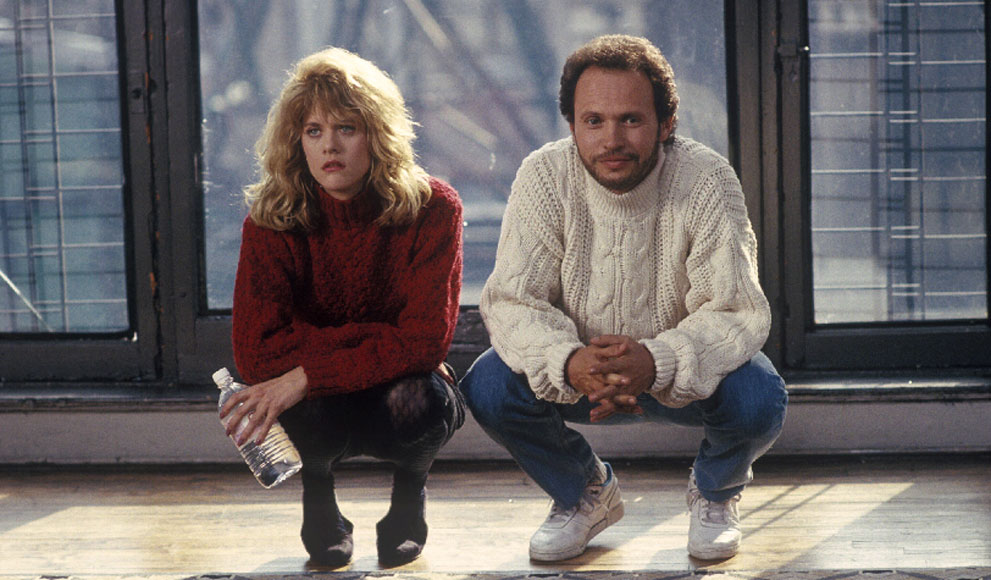New Course Examines Trailblazing Women of American Comedy

“When you slip on a banana peel, people laugh at you. But when you tell people you slipped on a banana peel, it’s your laugh.”
So said Nora Ephron ’62, a comedic pioneer and wry cultural commentator. A new course in Wellesley’s theatre studies department this spring explores the roles that Ephron and fellow female luminaries played in reshaping contemporary American culture over the last century.
The course THST 200, entitled That’s What She Said: Trailblazing Women of American Comedy, was created by visiting lecturer in theatre studies and alumna Marta Rainer ’98, herself an acclaimed performer and director whose work has been performed nationally, internationally, and Off-Broadway.
“As a student I was involved in many of the extra-curricular performance opportunities on campus, including being a proud four-year member and ultimate President of Dead Serious, the campus improv group,” said Rainer. “It's where I cut my teeth as an improviser, and ultimately went on to train at New Actors Workshop with Mike Nichols (one of the world's great improvisers, with his partner Elaine May) and Paul Sills, a lion and a wizard of a director who was the son of Viola Spolin, the source from whom most of our American improvised theatre stems from.” Experience with these comedy greats inspired Rainer to teach the course, as well as her personal experience with the College. “I want to teach it here above all because I would have wanted a course like this as a student: to be exposed to some of the zaniest, wackiest, not to mention fiercest and bravest women in the industry, who defied expectation and defined their own career paths. I'm still drawing inspiration from these women myself. I suspect–whether my students pursue comedy professionally or not–they can draw inspiration from their gumption and genius as well.” Rainer worked with Nora Hussey, director of the theatre studies program, to bring the course to fruition.
In the classroom, students engage the work of key performers like Elaine May, Joan Rivers, Carol Burnett, Gilda Radner, Whoopi Goldberg, Margaret Cho, Ephron, and others. They analyze larger questions about the social roles and forms of comedy, discuss the ways gender shapes comic performance, write essays about the role of comedy in their personal lives as well as culture at large, and craft original performance material to share with the class. Each student completes a final project based on a particular topic.
Rainer’s students come from a wide variety of academic disciplines—ranging from neuroscience and women's and gender studies to American studies, and theatre studies. For cinema and media studies major Katie Barsotti ’15, comedy is a long-held passion. “I've always been interested in comedy and I was excited to see this course offering - I love that at Wellesley we can approach the topic of women in comedy in an academic way,” she said. “Marta has set up the class to be very multi-faceted. We have viewings of the work of famous comedians across many genres of comedy combined with discussion and even performance by students. This approach allows us to explore the topic in a variety of ways and also allows for a lot of peer interaction. Recently, everyone in the class performed two minutes of stand up to close out our unit on women in stand up. Some of us are performers (members of Shakes house, Upstage, and Dead Serious) but many are not, and I was excited to see the different approaches each of us took.” Barsotti is a co-president of Dead Serious and is interested in pursuing a career in comedy herself, following in the footsteps of the extraordinary performers she studies.
Said Rainer, “My hope is that in engaging in this comedic work - watching performances and documentaries, reading, reading about, writing about, and ultimately trying one's hand at creating comedy in various forms - my students can gain a deeper appreciation of the craft involved in comedic creation, the tenacity involved in sustaining a career in a sometimes challenging atmosphere, the opportunity that exists for performers to have ownership over their artistic voice, and of the opportunity comedy provides to comment on one's immediate experience of the world.”
She added, “I also hope there will be a lot of laughing in the room.”
